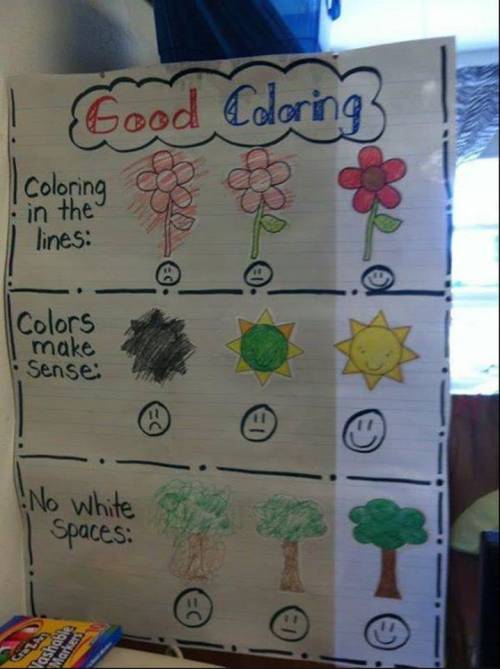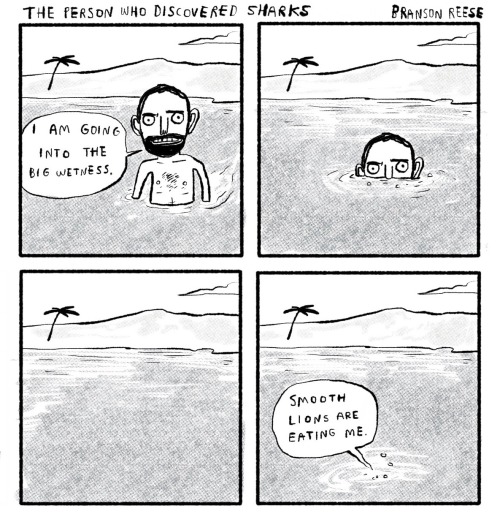A Collection
A Collection










More Posts from Seekerofcrimson and Others
Okay, so:
Latin has this word, sic. Or, if we want to be more diacritically accurate, sīc. That shows that the i is long, so it’s pronounced like “seek” and not like “sick.”
You might recognize this word from Latin sayings like “sic semper tyrannis” or “sic transit gloria mundi.” You might recognize it as what you put in parentheses when you want to be pass-agg about someone’s mistakes when you’re quoting them: “Then he texted me, ‘I want to touch you’re (sic) butt.’”
It means, “thus,” which sounds pretty hoity-toity in this modren era, so maybe think of it as meaning “in this way,” or “just like that.” As in, “just like that, to all tyrants, forever,” an allegedly cool thing to say after shooting a President and leaping off a balcony and shattering your leg. “Everyone should do it this way.”
Anyway, Classical Latin somewhat lacked an affirmative particle, though you might see the word ita, a synonym of sic, used in that way. By Medieval Times, however, sic was holding down this role. Which is to say, it came to mean yes.
Ego: Num edisti totam pitam?
Tu, pudendus: Sic.
Me: Did you eat all the pizza?
You, shameful: That’s the way it is./Yes.
This was pretty well established by the time Latin evolved into its various bastard children, the Romance languages, and you can see this by the words for yes in these languages.
In Spanish, Italian, Asturian, Catalan, Corsican, Galician, Friulian, and others, you say si for yes. In Portugese, you say sim. In French, you say si to mean yes when you’re contradicting a negative assertion (”You don’t like donkey sausage like all of us, the inhabitants of France, eat all the time?” “Yes, I do!”). In Romanian, you say da, but that’s because they’re on some Slavic shit. P.S. there are possibly more Romance languages than you’re aware of.
But:
There was still influence in some areas by the conquered Gaulish tribes on the language of their conquerors. We don’t really have anything of Gaulish language left, but we can reverse engineer some things from their descendants. You see, the Celts that we think of now as the people of the British Isles were Gaulish, originally (in the sense that anyone’s originally from anywhere, I guess) from central and western Europe. So we can look at, for example, Old Irish, where they said tó to mean yes, or Welsh, where they say do to mean yes or indeed, and we can see that they derive from the Proto-Indo-European (the big mother language at whose teat very many languages both modern and ancient did suckle) word *tod, meaning “this” or “that.” (The asterisk indicates that this is a reconstructed word and we don’t know exactly what it would have been but we have a pretty damn good idea.)
So if you were fucking Ambiorix or whoever and Quintus Titurius Sabinus was like, “Yo, did you eat all the pizza?” you would do that Drake smile and point thing under your big beefy Gaulish mustache and say, “This.” Then you would have him surrounded and killed.
Apparently Latin(ish) speakers in the area thought this was a very dope way of expressing themselves. “Why should I say ‘in that way’ like those idiots in Italy and Spain when I could say ‘this’ like all these cool mustache boys in Gaul?” So they started copying the expression, but in their own language. (That’s called a calque, by the way. When you borrow an expression from another language but translate it into your own. If you care about that kind of shit.)
The Latin word for “this” is “hoc,” so a bunch of people started saying “hoc” to mean yes. In the southern parts of what was once Gaul, “hoc” makes the relatively minor adjustment to òc, while in the more northerly areas they think, “Hmm, just saying ‘this’ isn’t cool enough. What if we said ‘this that’ to mean ‘yes.’” (This is not exactly what happened but it is basically what happened, please just fucking roll with it, this shit is long enough already.)
So they combined hoc with ille, which means “that” (but also comes to just mean “he”: compare Spanish el, Italian il, French le, and so on) to make o-il, which becomes oïl. This difference between the north and south (i.e. saying oc or oil) comes to be so emblematic of the differences between the two languages/dialects that the languages from the north are called langues d’oil and the ones from the south are called langues d’oc. In fact, the latter language is now officially called “Occitan,” which is a made-up word (to a slightly greater degree than that to which all words are made-up words) that basically means “Oc-ish.” They speak Occitan in southern France and Catalonia and Monaco and some other places.
The oil languages include a pretty beefy number of languages and dialects with some pretty amazing names like Walloon, and also one with a much more basic name: French. Perhaps you’ve heard of it, n'est-ce pas?
Yeah, eventually Francophones drop the -l from oil and start saying it as oui. If you’ve ever wondered why French yes is different from other Romance yeses, well, now you know.
I guess what I’m getting at is that when you reblog a post you like and tag it with “this,” or affirm a thing a friend said by nodding and saying “Yeah, that”: you’re not new

ms paint study from 2021


Once a little boy went to school. One morning The teacher said: “Today we are going to make a picture.” “Good!” thought the little boy. He liked to make all kinds; Lions and tigers, Chickens and cows, Trains and boats; And he took out his box of crayons And began to draw.
But the teacher said, “Wait!” “It is not time to begin!” And she waited until everyone looked ready. “Now,” said the teacher, “We are going to make flowers.” “Good!” thought the little boy, He liked to make beautiful ones With his pink and orange and blue crayons. But the teacher said “Wait!” “And I will show you how.” And it was red, with a green stem. “There,” said the teacher, “Now you may begin.”
The little boy looked at his teacher’s flower Then he looked at his own flower. He liked his flower better than the teacher’s But he did not say this. He just turned his paper over, And made a flower like the teacher’s. It was red, with a green stem.
On another day The teacher said: “Today we are going to make something with clay.” “Good!” thought the little boy; He liked clay. He could make all kinds of things with clay: Snakes and snowmen, Elephants and mice, Cars and trucks And he began to pull and pinch His ball of clay.
But the teacher said, “Wait!” “It is not time to begin!” And she waited until everyone looked ready. “Now,” said the teacher, “We are going to make a dish.” “Good!” thought the little boy, He liked to make dishes. And he began to make some That were all shapes and sizes.
But the teacher said “Wait!” “And I will show you how.” And she showed everyone how to make One deep dish. “There,” said the teacher, “Now you may begin.”
The little boy looked at the teacher’s dish; Then he looked at his own. He liked his better than the teacher’s But he did not say this. He just rolled his clay into a big ball again And made a dish like the teacher’s. It was a deep dish.
And pretty soon The little boy learned to wait, And to watch And to make things just like the teacher. And pretty soon He didn’t make things of his own anymore.
Then it happened That the little boy and his family Moved to another house, In another city, And the little boy Had to go to another school.
The teacher said: “Today we are going to make a picture.” “Good!” thought the little boy. And he waited for the teacher To tell what to do. But the teacher didn’t say anything. She just walked around the room.
When she came to the little boy She asked, “Don’t you want to make a picture?” “Yes,” said the little boy. “What are we going to make?” “I don’t know until you make it,” said the teacher. “How shall I make it?” asked the little boy. “Why, anyway you like,” said the teacher. “And any color?” asked the little boy. “Any color,” said the teacher. And he began to make a red flower with a green stem.
~Helen Buckley, The Little Boy


There’s like 12 different kinds of tension in this image.
Reblog if you support asexuals and aren’t a COWARD
RB if your blog is a safe, accepting space for asexuals!
That's actually a common misconception! A hanging chad is a type of lizard; a dangling participle is actually a species of fish.
A dangling participle is a kind of lizard.
-
 inactive-dm-for-main liked this · 3 weeks ago
inactive-dm-for-main liked this · 3 weeks ago -
 valentiandivineaccord liked this · 1 month ago
valentiandivineaccord liked this · 1 month ago -
 coffeemuncho liked this · 1 month ago
coffeemuncho liked this · 1 month ago -
 prince-is-a-loser reblogged this · 1 month ago
prince-is-a-loser reblogged this · 1 month ago -
 prince-is-a-loser liked this · 1 month ago
prince-is-a-loser liked this · 1 month ago -
 plumfruitflower reblogged this · 1 month ago
plumfruitflower reblogged this · 1 month ago -
 puer-cattus liked this · 1 month ago
puer-cattus liked this · 1 month ago -
 joy-eris-joy liked this · 2 months ago
joy-eris-joy liked this · 2 months ago -
 neon-zipperooni reblogged this · 2 months ago
neon-zipperooni reblogged this · 2 months ago -
 witnessing-the-horrors liked this · 2 months ago
witnessing-the-horrors liked this · 2 months ago -
 villafordefeatedvillains liked this · 2 months ago
villafordefeatedvillains liked this · 2 months ago -
 witchliibra reblogged this · 2 months ago
witchliibra reblogged this · 2 months ago -
 autisticshuichi reblogged this · 2 months ago
autisticshuichi reblogged this · 2 months ago -
 glade-alerted-the-horde reblogged this · 2 months ago
glade-alerted-the-horde reblogged this · 2 months ago -
 glade-alerted-the-horde liked this · 2 months ago
glade-alerted-the-horde liked this · 2 months ago -
 pannaghosta liked this · 2 months ago
pannaghosta liked this · 2 months ago -
 chimerasmoon reblogged this · 2 months ago
chimerasmoon reblogged this · 2 months ago -
 chimerasmoon liked this · 2 months ago
chimerasmoon liked this · 2 months ago -
 mrcloudyfun liked this · 2 months ago
mrcloudyfun liked this · 2 months ago -
 cosmic-espero reblogged this · 2 months ago
cosmic-espero reblogged this · 2 months ago -
 cosmic-espero liked this · 2 months ago
cosmic-espero liked this · 2 months ago -
 lirs-main reblogged this · 2 months ago
lirs-main reblogged this · 2 months ago -
 cappuccino-bear reblogged this · 2 months ago
cappuccino-bear reblogged this · 2 months ago -
 bookmark-extraordinaire reblogged this · 2 months ago
bookmark-extraordinaire reblogged this · 2 months ago -
 asteria-nychta reblogged this · 2 months ago
asteria-nychta reblogged this · 2 months ago -
 asteria-nychta liked this · 2 months ago
asteria-nychta liked this · 2 months ago -
 whoistakingallthegoodusernames liked this · 2 months ago
whoistakingallthegoodusernames liked this · 2 months ago -
 pikaapapow reblogged this · 2 months ago
pikaapapow reblogged this · 2 months ago -
 owy-exe liked this · 2 months ago
owy-exe liked this · 2 months ago -
 glitter---gutz liked this · 2 months ago
glitter---gutz liked this · 2 months ago -
 mastercardpussy liked this · 2 months ago
mastercardpussy liked this · 2 months ago -
 stb14 reblogged this · 2 months ago
stb14 reblogged this · 2 months ago -
 stb14 liked this · 2 months ago
stb14 liked this · 2 months ago -
 brainshittery reblogged this · 2 months ago
brainshittery reblogged this · 2 months ago -
 breadfruitcuddle liked this · 2 months ago
breadfruitcuddle liked this · 2 months ago -
 paras3ct reblogged this · 2 months ago
paras3ct reblogged this · 2 months ago -
 sleepychrysanthemums reblogged this · 2 months ago
sleepychrysanthemums reblogged this · 2 months ago -
 starlitartworks liked this · 2 months ago
starlitartworks liked this · 2 months ago -
 noctilionoidea reblogged this · 2 months ago
noctilionoidea reblogged this · 2 months ago -
 noctilionoidea liked this · 2 months ago
noctilionoidea liked this · 2 months ago -
 snowychicken reblogged this · 2 months ago
snowychicken reblogged this · 2 months ago -
 snowychicken liked this · 2 months ago
snowychicken liked this · 2 months ago -
 thatone-churro reblogged this · 2 months ago
thatone-churro reblogged this · 2 months ago -
 thatone-churro liked this · 2 months ago
thatone-churro liked this · 2 months ago -
 sasspawrilla liked this · 2 months ago
sasspawrilla liked this · 2 months ago -
 viccytheimpaler liked this · 2 months ago
viccytheimpaler liked this · 2 months ago -
 plagebringer liked this · 2 months ago
plagebringer liked this · 2 months ago -
 andrewoon0w0 reblogged this · 2 months ago
andrewoon0w0 reblogged this · 2 months ago -
 andrewoon0w0 liked this · 2 months ago
andrewoon0w0 liked this · 2 months ago

